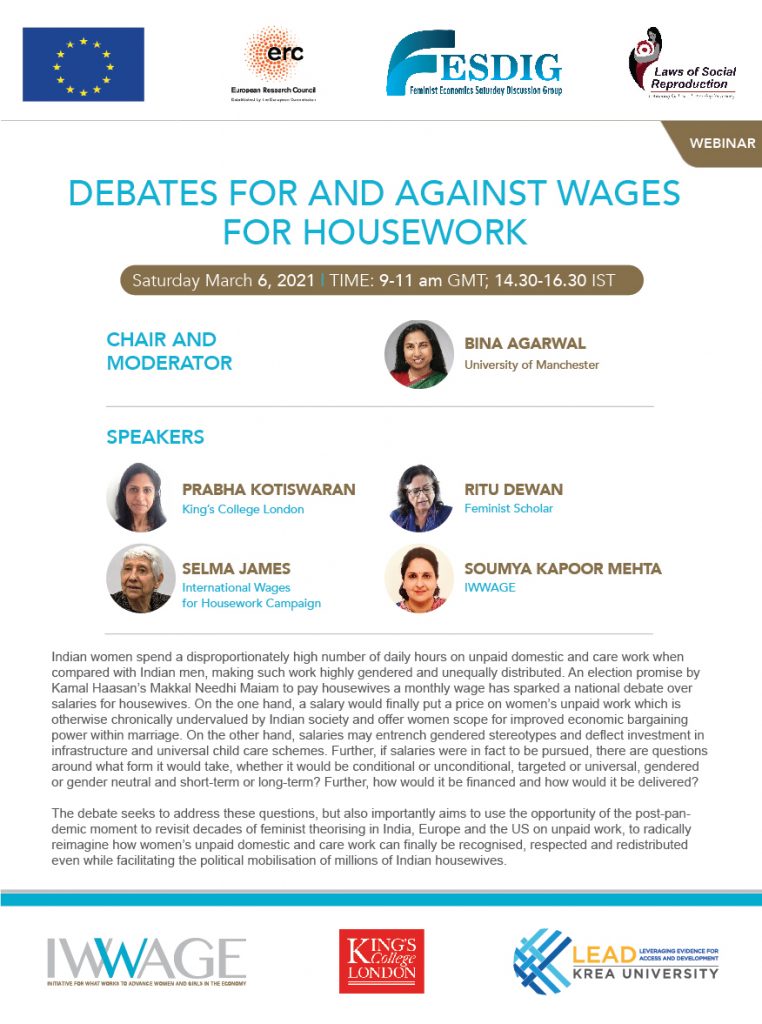
The idea of a wages for housework movement and a salary for housewives has sparked much interest and debate in the Indian context. The prospect of a salary for housework has found support amongst many who consider women’s unpaid domestic and care labour as work and believe that recognising and paying for such work in the home would empower women. Equally, there are concerns that a demand for payment to housewives will take the debate away from where its focus should be i.e. better measurement of women’s unpaid work so it gets counted in labour statistics; improved access to infrastructure such as piped water, clean energy and transportation which would allow women to access opportunities; and provision of universal, quality child care centres which would free women from the burden of care. In case wages were to be paid to women for housework, there are other unresolved and debatable issues. For example, who should pay for such work? How should unpaid domestic and care work (UDCW) be valued? Should women be paid a care income? Should the payment be conditional or unconditional? targeted or universal, gendered or gender neutral, short-term or long-term? How would it be financed? How would it be delivered? Finally, whether salaries for housework materialise or not, political demands for the recognition of UDCW can lead to the mobilisation of tens of millions of Indian housewives. This panel discussed implications of wages for housework for the collective mobilisation of Indian housewives. The session was chaired by Bina Agarwal, University of Manchester, and the panellist included Prabha Kotiswaran, King’s College London, Ritu Dewan, Feminist Scholar, Selma James, International Wages for Housework Campaign, and Soumya Kapoor Mehta, IWWAGE.
















































